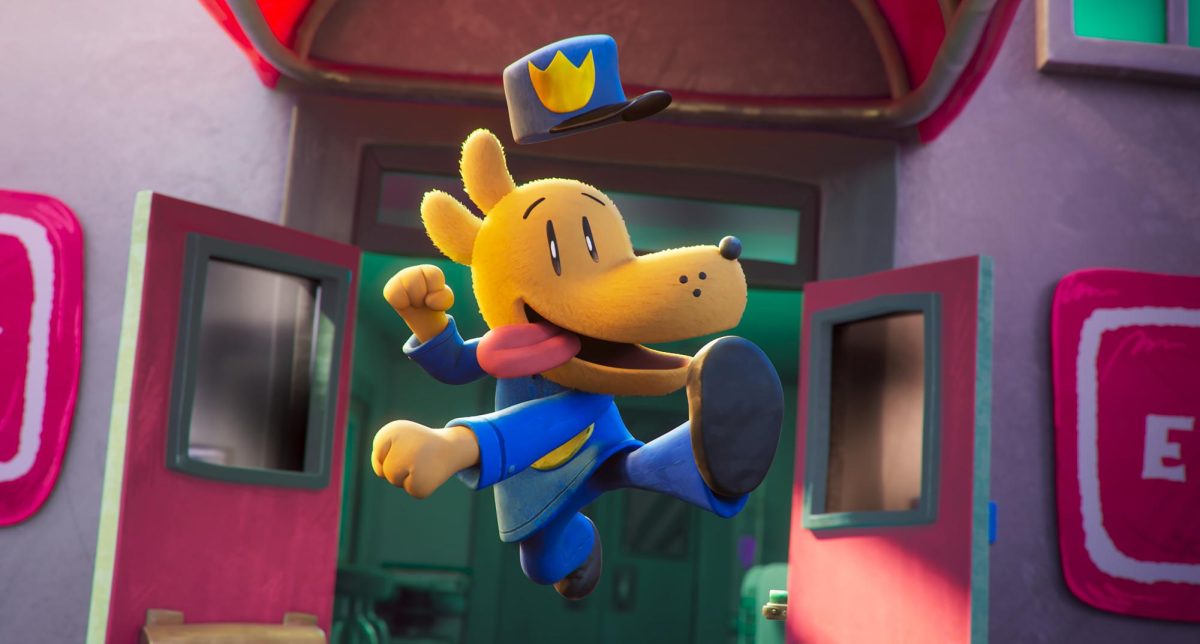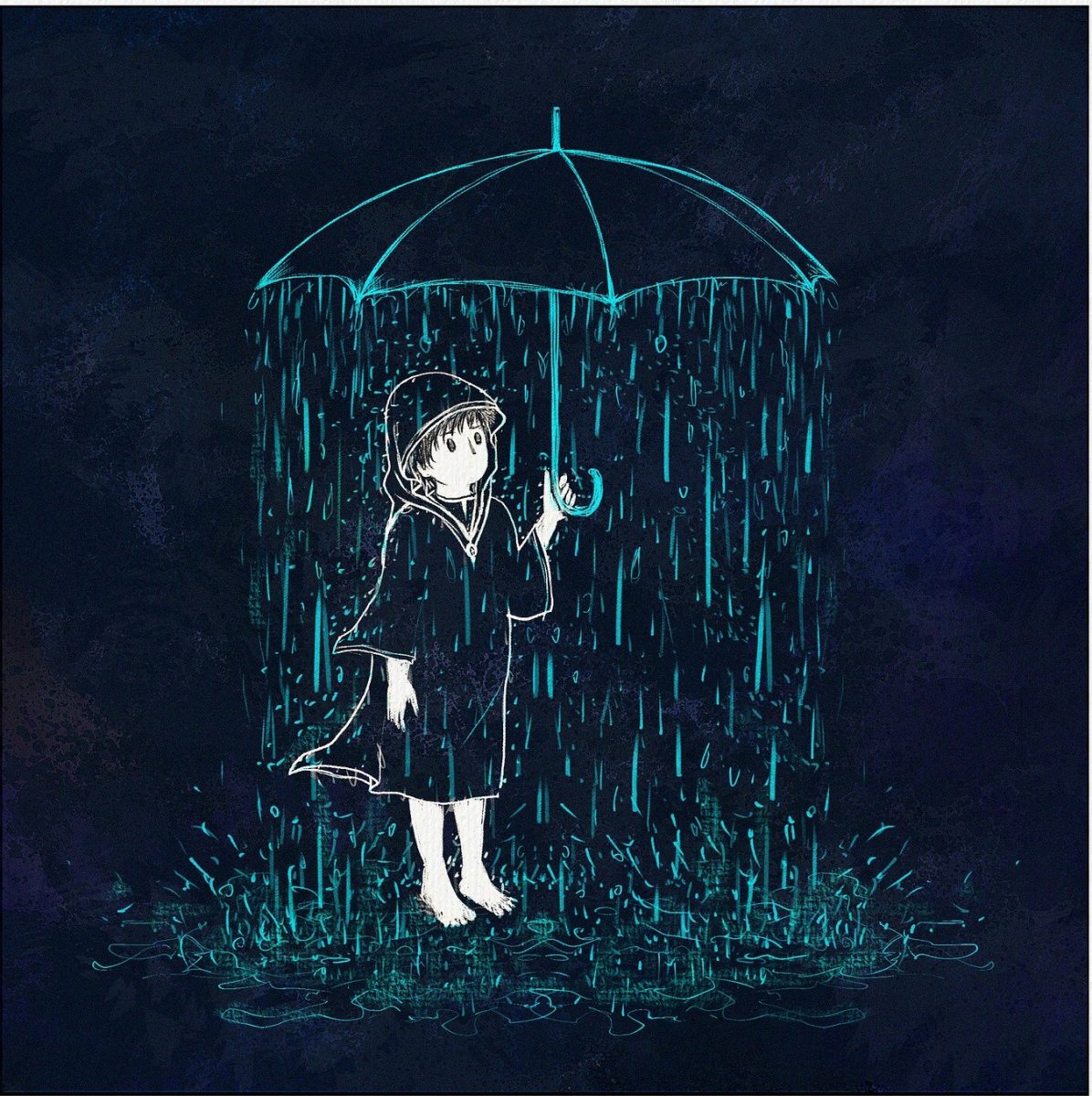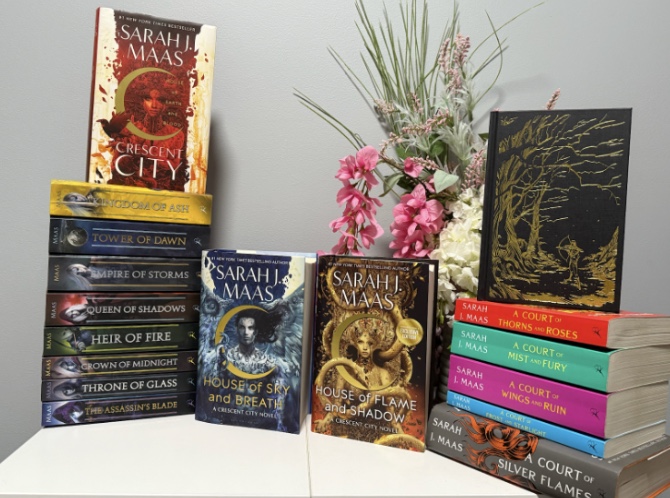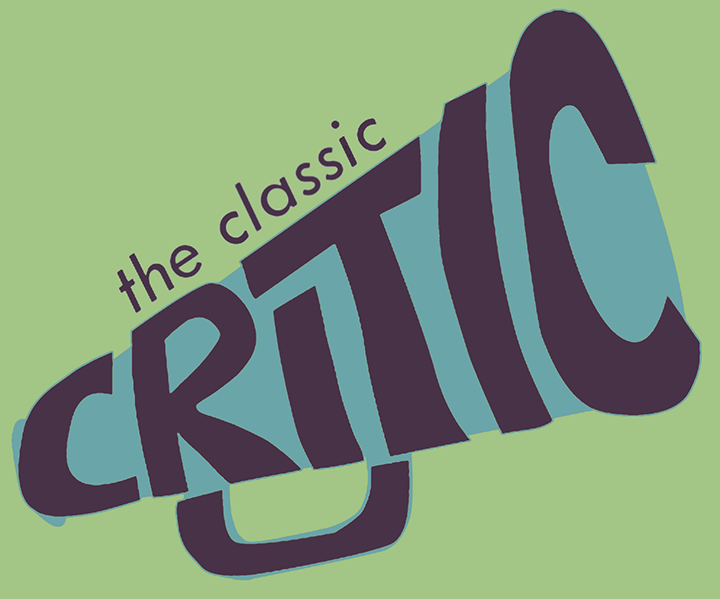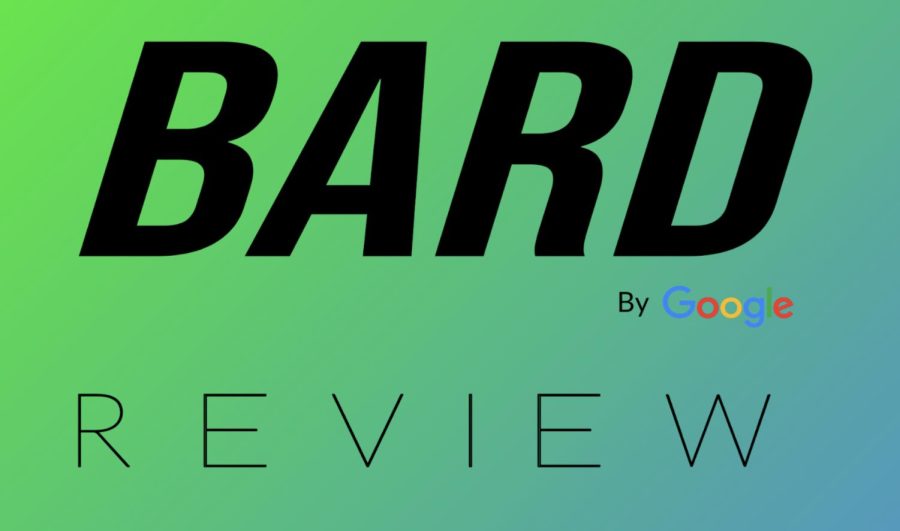Reviewing Bard: Scary Good
May 18, 2023
If you needed any further proof that robots are taking over the world, then look no further than Google’s new public artificial intelligence experiment named Bard. For those who have never heard of Bard or similar chatbots, it essentially takes a prompt or question and answers it in any format the user desires, from an academic essay to a Shakespearean sonnet. With Bard now available for anyone with a Google account to try out, I decided to put it to the test. In the end, I was the one who was tested.
Fresh off the heels of my AP Physics 1 test, the first prompt that came to my mind was “Write a study plan for the AP Physics 1 exam.” In a matter of seconds Bard provided a fairly reasonable procedure that outlined what to focus on during each week of April. For instance, in the fourth week before the exam, I was instructed to make a cumulative list of topics and begin studying multiple-choice questions, while in later weeks I would take practice exams, attend extra-help sessions, and review my common mistakes from previous questions. Honestly Bard’s plan sounds quite foolproof and could very well improve one’s score. I just wish that Bard was made available as a study tool sooner…
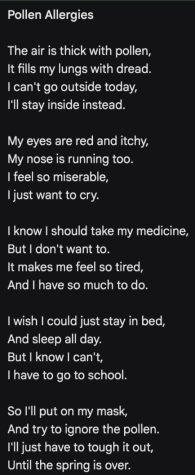 However, this plan fails to account for the tsunami of pollen that has graced my senses in the past month. Between solving for gravitational potential energy and calculating the angular acceleration of hoops rolling down ramps, I held back sneezes, wiped away teary eyes, and sniffed in my runny nose (so as to not provide me with a linear momentum in the opposite direction). Therefore, I asked Bard to “write a sonnet about a student with pollen allergies.” For a machine that has never experienced the struggles of dealing with seasonal allergies, Bard eloquently portrayed my daily conflicts with the floating plant matter via a sonnet that is simply too good to not share.
However, this plan fails to account for the tsunami of pollen that has graced my senses in the past month. Between solving for gravitational potential energy and calculating the angular acceleration of hoops rolling down ramps, I held back sneezes, wiped away teary eyes, and sniffed in my runny nose (so as to not provide me with a linear momentum in the opposite direction). Therefore, I asked Bard to “write a sonnet about a student with pollen allergies.” For a machine that has never experienced the struggles of dealing with seasonal allergies, Bard eloquently portrayed my daily conflicts with the floating plant matter via a sonnet that is simply too good to not share.
I was still not done in my quest to trick Bard. I asked potentially challenging questions like “How should I make peanut butter without peanuts?” and “How many pens make one pencil?” and in response I received a recipe for sunflower seed butter and a lengthy explanation on how pens can chemically not become pencils, respectively. However, in a sudden burst of anguish, I activated all of my brain cells to think of a prompt: “Write a story from the perspective of an alpaca watching a tragedy play in ancient Greece.” In response I was met with a well-written, frankly emotional story about an alpaca who was moved by the characterization of the actors and the plot of the play. At this point I admitted defeat.
Bard works, often too well. For attempting to create a schedule, being inspired to work, or even just playing around with, Bard and other chatbots are a surprising advancement at a time when technological innovation is gradually becoming more rare.




